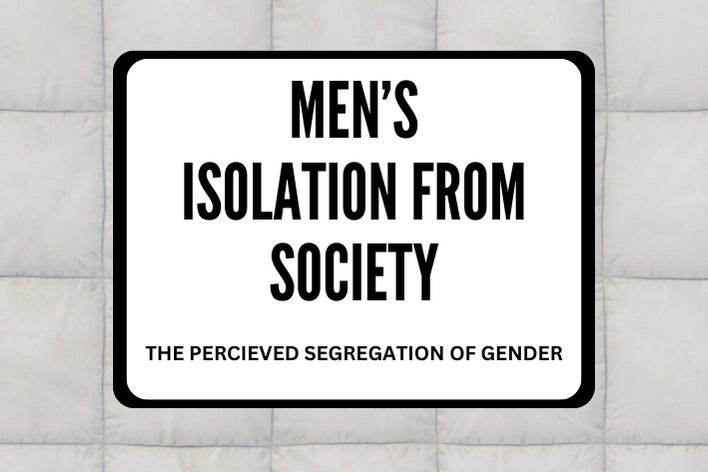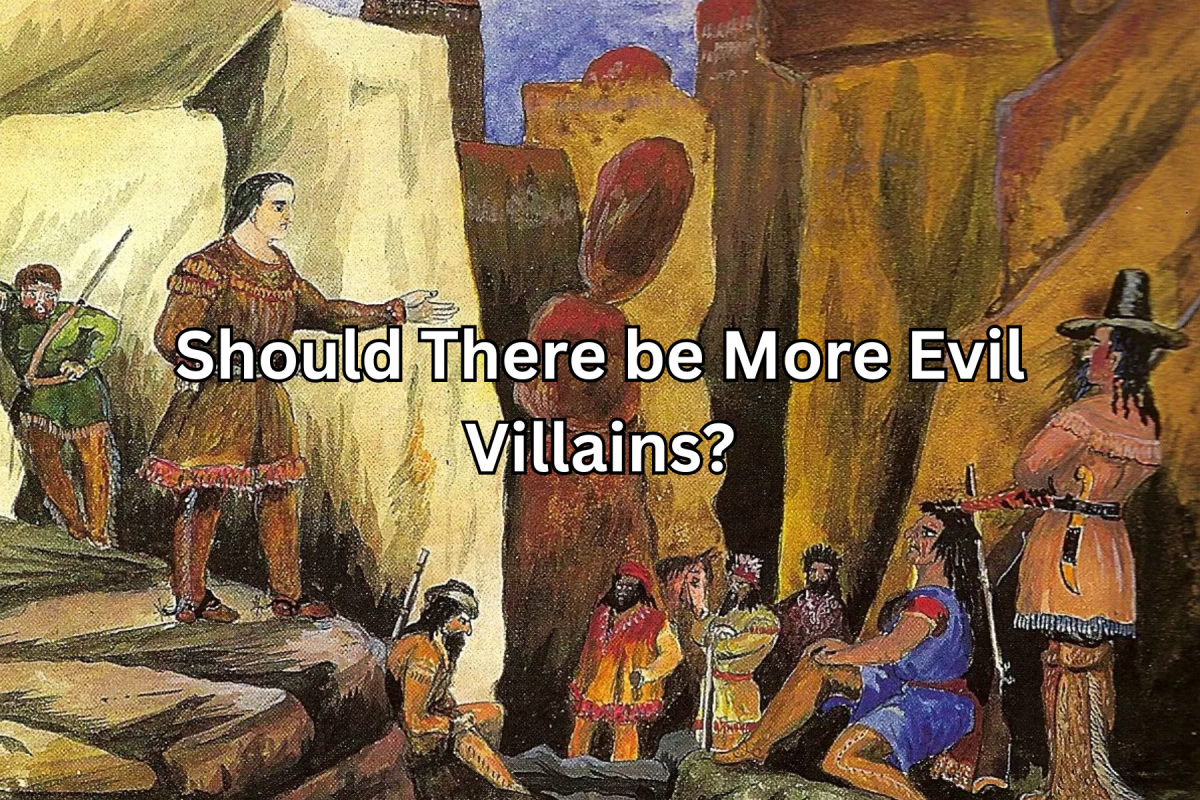As a man, a lot of things are expected of you. You’re supposed to provide for your family first, and be their impenetrable shield from all that is wrong with the world second. It’s an expectation that in the face of things that normally would send people down a depressive spiral that you don’t even trip. You are a bastion of strength, and anything less than perfect stoicism would make you an abject failure. Or at least, that’s what gets bashed into men’s skulls–sometimes literally–since they took their first step out of the cradle.
The American Dream raised a society of white picket fences and with it came the archetypes for what most consider “traditional gender roles.” The husband provides and protects, while the wife supports. It’s… well- despite having come to fruition a measly 100-ish years ago, the best word to describe it is as archaic. Especially since it led to a massive separation between genders.
“I think that it’s entirely up to the individual. If a couple, male, female, whatever, they’ll find a way to cooperate, and I don’t think it’s anybody’s business to tell them that that’s wrong.” Mr. Heath, head of the livestreaming crew at Great Bend High School and teacher of Video and Audio Production. “They used to teach it (gender roles). When I was in school in the eighties’ it was called home economics and boys were not allowed to take home economics.”
“Girls have their girl time and boys will be boys after all, and it’d be improper to have them intermingle!” No- it wouldn’t, and by creating that barrier between the two has resulted in irreparable damage to both sides, if that isn’t obvious to see. Men can’t confide in each other because of the social expectation to ‘man up’ and can’t talk to women both because of perceived taboo and being shunned from speaking with the fairer sex their whole lives, while women have to have a healthy fear of strange men and only having other women to confide in because they’ve been hurt, assaulted, or just plain degraded by men.
And, believe it or, these things feed into each other. Men having nowhere to go might eventually seek out a romantic partner, in this instance a woman, and if they get stone walled it might send them spiraling. This is both how you get “incel” culture and a large chunk of violent crime relating to sexual assault or rape. And women, smartly, will recognize that they can’t blindly trust men because they don’t want to end up on the nightly news reported missing.
And let it be clear, this hesitance that most women have–seriously, go ask any girls you know–is not the biggest reason for so many men turning into defilers of the human form, and these sorry excuses for human beings that got turned down by their high school crushes before deciding that forcing themselves onto the autonomy of another person are both a stark outlier for most men, as well as entirely unsympathetic. But they exist, and because of how populated the U.S. is, they exist in droves, and the number of them will continue to exist. Extremists on both sides of the equation exasperate the issue, and a lack of emotional intelligence in young boys result in more of these monsters coming to be.
When was the last time you saw a grown man really cry? Not teary eyed, not damp cheeks, but sobs that cause the air in their throats to get stuck, with spittle running down their chin?
“Years.” Joshua Ketch, a senior at Great Bend High School said simply.
“I’m a middle aged white male in America, it’s not something we hang onto those emotions…” Said Heath, continuing. “Occasionally, out of the blue, I will cry over the death of my dad, and it’s been six years. And something like- random will happen that will remind me of him and that will make me cry.”
Conversely, when was the last time you saw a grown woman really cry? According to the American Psychological Association, women emotionally cry 30-64 times a year, while men only emotionally cry 5-17 times in a single year. That means that women will cry four to six times more often than men.
“Everyday, I’m an emotional person.” Alissa Richardson, a student at Great Bend High School said.
“At least in my generation of people, of men, is we’re trained to try to fix it. That if a woman is sad then something has hurt her, and we must protect her.” Heath continued. “I think you assume that there’s something wrong with them (men). When you see a woman crying you want to protect her from whatever outside thing is hurting her, if it’s a man you immediately assume it’s some sort of internal problem that the person has.”
And that can’t just be attributed to a difference in biology, as a different article by the American Psychological Association talks about how different countries have different averages with the gaps between genders being drastically smaller in some countries. While I believe that it falsely comes to the conclusion that poorer countries have this smaller gap because of a lack of emotional expression, I think that the inverse is true, the richer countries–like the U.S.–has this gap because of the social stigma around freedom of expression.
Sure, we preach that people should express themselves and that freedom of speech is one of our utmost important values as a country, but at the same time, we’ll see a man crying over the fact he was just sexually assaulted and promptly tell him to ‘man up’ or to ‘take it like a man’.
“…my generation of people assume that men can’t be sexually assaulted. Just because there was this horrible double standard that was created…” Dan Heath said. ”There’s always been a double standard created…”
“Very differently, it’s not even the same thing. Let’s say, a man was groped in public by a stranger, people would just say ‘oh get over it.” Ketch continued. “(Women’s sexual assault) is treated exactly as it should be.”
And while that’s another rabbit hole in and of itself, going into how we treat men getting raped and sexually exploited, it’s an interesting topic I encourage you to look into. If only to educate yourself.
But at least there’s silver lining. In the last five years, how mental health is viewed and treated, especially for men, has shifted to a more positive outlook. Not positive in the sense that people enjoy seeing depressed men, but positive in the sense that people are recognizing that how we have treated mental health for decade’s wasn’t the best. At least in America anyway.
“In the last five years it’s gotten better, I think everybody’s sorta loosened a bit on the gender expectations, that sort of thing.” Heath closed. It’s getting better. One step at a time, like climbing a mountain at a ninety degree angle with an anvil tied to our back, slowly, it’s getting better.







